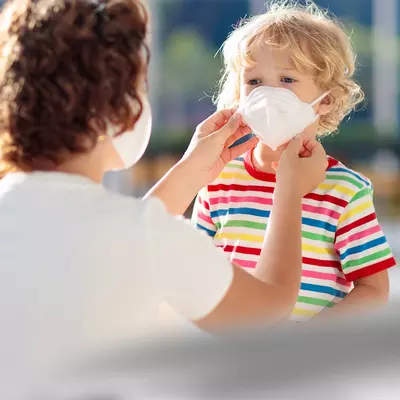- AdventHealth

If you’re looking for the most accurate and up-to-date information about coronavirus, an important resource is the Centers for Disease Control and Prevention (CDC). The CDC has gathered the most important details surrounding coronavirus that you should know at this time, and we’ve summarized them below.
Coronavirus Explained
The novel coronavirus (COVID-19) is a respiratory illness. While there are other types of coronavirus, COVID-19 is a new disease that was first identified through an outbreak that first began in Wuhan, China.
How COVID-19 Spreads
According to the CDC, experts are still monitoring how COVID-19 spreads, but it’s believed to be like similar coronaviruses. Currently, it’s thought that COVID-19 spreads mainly through person-to-person contact predominately when an infected person is showing the most symptoms. It’s possible, but less likely, that the virus could be spread before someone infected has symptoms.
COVID-19 moves from person-to-person through respiratory droplets that enter the air when an infected person coughs or sneezes. Once airborne, these droplets then enter other people within up to six feet of each other via their mouth or nose.
At this time, the CDC says it’s possible that COVID-19 is spread from contacting a surface or object that is contaminated with the virus, but this is likely not the main way the virus spreads to others.
Symptoms of COVID-19
COVID-19 can present with symptoms that range from mild to severe, currently with some cases leading to death.
The three main symptoms are:
- Fever
- Cough
- Shortness of breath
One thing to keep in mind is that symptoms may start anywhere from two to 14 days after one is exposed to the virus.
What to Do If You Have Symptoms
First, don’t panic. Just because you have these symptoms doesn’t mean that you have the novel coronavirus.
The CDC is currently recommending that you call your health care professional if you are experiencing symptoms and have been in close contact with someone that has been diagnosed with coronavirus or you’ve recently traveled from a place where there has been widespread coronavirus. You can check the latest areas affected by COVID-19 here.
How to Prevent Coronavirus
The CDC has developed a very informative interim guidance for preparing for and preventing coronavirus. We recommend that you read this checklist and take action now to adopt the CDC’s recommendations.
According to the CDC, there are a few everyday activities that you can do now to help prevent the transmission of coronavirus.
These include:
- Avoiding others who are sick
- After getting medical care, staying home when sick
- Using a tissue or your elbow to cover your coughs and sneezes
- Cleaning frequently touched surfaces and objects with a household detergent daily
- Cleaning visibly dirty surfaces with a detergent and then a disinfectant
- Frequently washing your hands often with soap and water for at least 20 seconds
- Using a hand sanitizer that contains at least 60% alcohol
To stay up to date with the latest information, you can reference our Coronavirus Resource Hub.



